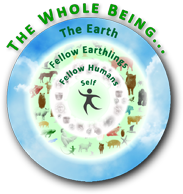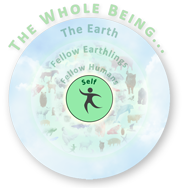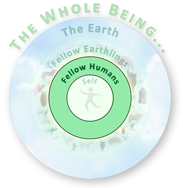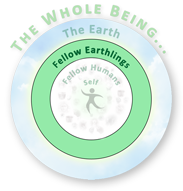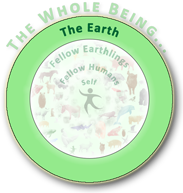Resource Library
To narrow down the list to only resources personally endorsed by CNCL, tick the “CNCL-Endorsed” box.
Please let us know if you find any errors or dead links.
Click here
for a list of…![]()
Broad-Coverage Independent News
& Media Sites
“The primary focus of the LIFE program is to develop awareness of the consciousness of “the living energy of needs” or “the beauty of needs.” This is the foundational base for Living Compassion and is core to living and integrating NVC into life. The deepening work of the LIFE program is designed to establish a clear pathway to first identifying, then experiencing and cultivating this consciousness. This work supports an embodied spirituality and a way to engage in a living practice in our everyday, moment-to-moment living. Processes and tools are offered that serve this integration and development.” “The mission of The Life You Can Save (TLYCS) is to help change the culture of giving in affluent countries while dramatically raising annual donations to highly impactful nonprofits that reduce suffering and premature death, and improve life and livelihoods, for people living in extreme poverty.” “In just three minutes, this video will tell you how you can save a life. Watch it, share it, act.” Book: “For the first time in history, eradicating world poverty is within our reach. Yet around the world, a billion people struggle to live each day on less than many of us pay for bottled water. In The Life You Can Save, Peter Singer uses ethical arguments, illuminating examples, and case studies of charitable giving to show that our current response to world poverty is not only insufficient but morally indefensible. The Life You Can Save teaches us to be a part of the solution, helping others as we help ourselves.” Book: “The Lifelong Activist is a guide to living a joyful and productive life that includes a strong progressive mission. It offers simple and clear instructions that help you figure out the form your authentic life should take, and live that life with a maximum of joy and productivity, and a minimum of fear, guilt and shame. The book’s sections are: -Managing Your Mission (figuring out your authentic mission). -Managing Your Time (building a schedule that allows you to realize that mission). -Managing Your Fears (beating perfectionism, procrastination and blocks to success, so you can follow your schedule). -Managing Your Relationships (leveraging your strengths with those of others). The Lifelong Activist is for liberal activists, artists, campaign workers, labor organizers, volunteers, students, teachers, human services workers, and entrepreneurs, but anyone can use it and learn from it. It can act as a useful handbook for students and young people at the beginning of their careers; those contemplating a career or path change; and those at risk for burnout will find it particularly useful.” “The Listening Project provides guidance and training for: Community Listening Projects (CLP) and Facilitated Group Listening (FGL). Both programs have a thirty-year history of helping community organizations achieve transformative change around issues of justice, conflict, health, community development, education, environment, and other concerns…our organization has worked with hundreds of national and international community-based organizations to overcome divisions caused by social and economic injustice, as well as ethnic, racial, religious and cultural conflicts. The Listening Project training and resources can enable communities to find unity on issues of health, education, sustainability, and countless other forms of community strengthening and development.” “Our ancestors gathered around a fire in a circle, families gather around their kitchen tables in circles, and now we are gathering in circles as communities to solve problems. This peacemaking practice draws on the ancient Native American tradition of a talking piece and combines that with concepts of democracy and inclusivity. Peacemaking circles are used in neighborhoods to provide support for those harmed by crime and to decide sentences for those who commit crime, in schools to create positive classroom climates and resolve behavior problems, in the workplace to deal with conflict, and in social services to develop more organic support systems for people struggling to get their lives together. The circle process hinges on storytelling. It is an effort bringing astonishing results around the country. A title in The Little Books of Justice and Peacebuilding Series.” “With grace, acuity, and humor, Miki Kashtan has shared with thousands of people on five continents how to live from love, courage and truth – in every moment, in thought, word, and deed. By integrating these three hallmarks of nonviolence into daily life, radical shifts happen…you begin to choose how to respond to life, rather than merely reacting; you no longer settle for solutions that work only for you or only for others; and, more and more, you step into leadership by taking responsibility for the whole in every situation. This little book contains 200 concise, evocative distillations of her wisdom, illustrated with powerful and original images. The Little Book of Courageous Living is an invitation to you to begin to build your own courageous life.” “Howard Zehr is the father of Restorative Justice and is known worldwide for his pioneering work in transforming understandings of justice. Here he proposes workable principles and practices for making Restorative Justice possible in this revised and updated edition of his bestselling, seminal book on the movement. (The original edition has sold more than 110,000 copies.) Restorative Justice, with its emphasis on identifying the justice needs of everyone involved in a crime, is a worldwide movement of growing influence that is helping victims and communities heal, while holding criminals accountable for their actions. This is not soft-on-crime, feel-good philosophy, but rather a concrete effort to bring justice and healing to everyone involved in a crime. In The Little Book of Restorative Justice, Zehr first explores how restorative justice is different from criminal justice. Then, before letting those appealing observations drift out of reach into theoretical space, Zehr presents Restorative Justice practices. Zehr undertakes a massive and complex subject and puts it in graspable from, without reducing or trivializing it. This resource is also suitable for academic classes and workshops, for conferences and trainings, as well as for the layperson interested in understanding this innovative and influential movement.” “Much more than a response to harm, restorative justice nurtures relational, interconnected school cultures. The wisdom embedded within its principles and practices is being welcomed at a time when exclusionary discipline and zero tolerance policies are recognized as perpetuating student apathy, disproportionality, and the school-to-prison pipeline. Relying on the wisdom of early proponents of restorative justice, the daily experiences of educators, and the authors’ extensive experience as classroom teachers and researchers, this Little Book guides the growth of restorative justice in education (RJE) into the future. Incorporating activities, stories, and examples throughout the book, three major interconnected and equally important aspects of restorative justice in education are explained and applied: creating just and equitable learning environments; building and maintaining healthy relationships; healing harm and transforming conflict. The Little Book of Restorative Justice in Education is a reference that practitioners can turn to repeatedly for clarity and consistency as they implement restorative justice in educational settings.” Video: “At the core of our being, lies the heart. The heart is what contains human emotion, including love and compassion. Though humanity wants world peace, we can’t seem to live peacefully amongst one another. Religious institutions, schools and educational systems, military and governments have done little to nothing to end the violence. Love is the solution, yet we continue to justify the violence. Why is this? The Lost Love examines why we lost our innate love for all life, and what we can do to reawaken it within us, and cultivate that to the rest of the world.” “Do you shape the world or does it shape you? Drawing on leading thinkers from around the world, and with a torrent of mind-expanding ideas and information, THE LOTTERY OF BIRTH will make you think again about what it means to be free.” “Building upon the achievements of Stanford University’s Martin Luther King, Jr. Papers Project, the King Institute supports a broad range of activities illuminating Dr. King’s life and the movements he inspired.” Book: “Designed to produce dramatic health improvement in two months, a healthy eating program focuses on helping those who have already had, or are in danger of having a heart attack, but is also useful as a guide to the prevention of coronary disease.” Book: “In this eye-opening book, Sierra Club Director Ken Midkiff exposes the dangers posed by corporate control of agriculture (agribusiness)–to our health, and to the health of the nation’s economy, security, and the environment. The Meat You Eat explores the current practices of the corporations taking over the raising and slaughtering of farm animals (and farmed fish, such as salmon). These companies use a model that has transformed livestock farming from quality-driven family-owned operations into big businesses concerned with volume, efficiency, uniformity, and profits above all. Midkiff reveals the true cost of agribusiness on all levels-environmental, financial, moral, legal, and medical-balancing startling truths with practical solutions. Rather than advocate a vegan or vegetarian diet, Midkiff argues that using and supporting local farmers will improve the quality of life for us all, as well as for the animals whose meat we eat. Complete with resource sections about where to find local farmers and lists of agribusiness culprits, the book encourages us to take an active interest in what we put on our plates and in our mouths, and use the power of our pocketbooks to make it clear that our health, our environment, and our communities are of vital importance. With a foreword by Wendell Berry, hailed by The New York Times Books Review as the “great moral essayist of our day,” The Meat You Eat is an informative and ringing call to arms.” “When The Meatrix® launched in November 2003, the viral film broke new ground in online grassroots advocacy, creating a unique vehicle by which to educate, entertain and motivate people to create change. The Meatrix movies, now a series, have been translated into more than 30 languages and are one of the most successful online advocacy campaigns ever ― with well over 30 million viewers worldwide. In early 2003, Free Range Studios awarded a grant to GRACE’s Sustainable Table® program to create an animated movie. The studio was impressed that Sustainable Table not only educated viewers about factory farming but also offered simple solutions to support sustainable food and agriculture. They created The Meatrix, spoofing The Matrix movie while educating viewers about the problems with factory farming. To respond to the overwhelming positive feedback from the public, Sustainable Table and Free Range Studios launched the sequel The Meatrix® II: Revolting in March 2006, to explore the dark side of the industrial dairy industry. In November 2006, in partnership with Participant Productions, The Meatrix® II 1/2 was also released to help promote the social action campaign around the Fast Food Nation movie and to show what happens inside a meat processing facility…The Meatrix website offers information on the issues surrounding factory farming, as well as alternatives to conventionally-raised meat, poultry, dairy, and eggs. The website also features The Meatrix Interactive 360, a tool to help people learn about factory farming, with in depth information on the issues. The Eat Well Guide®, an online directory of sustainable food from farms, stores and restaurants in North America, was launched with the original movie to help people take action. “ Book: “Are you ready to get to the roots of your challenges around food– whether it’s gratuitous snacking,compulsive or emotional eating, indulging cravings, overeating, or other disheartening habits? Be ready to get mindful. Mindfulness can be the deciding factor between your successful adoption of a healthy vegan diet and repeated frustrating attempts. This simple technique goes under the surface of what is hampering your happiness, providing a sought-after solution to many of life’s ups and downs by rewiring your reactivity to challenges. Certified mindfulness meditation facilitator, award winning health educator, and longtime vegan advocate Lani Muelrath has been practicing mindfulness meditation for 25 years. In The Mindful Vegan, she teaches you how to practice mindfulness and shows how it can bring freedom and a new joy to your eating– and living– experience.” “A Greenpeace guide to cooking up people powered campaigns…Learn the “key ingredients” of people-powered campaigns and approaches for becoming more engagement-centric.” 44 page pdf available in Arabic, Chinese (Hong Kong), Chinese (Taiwan), French, Slovenian and Spanish. “Three civic engagement models that can help bring the voices of everyday citizens into public life.” Book: “From the ethicist the New Yorker calls “the most influential living philosopher,” a new way of thinking about living ethically. Peter Singer’s books and ideas have been disturbing our complacency ever since the appearance of Animal Liberation. Now he directs our attention to a new movement in which his own ideas have played a crucial role: effective altruism. Effective altruism is built upon the simple but profound idea that living a fully ethical life involves doing the “most good you can do.” Such a life requires an unsentimental view of charitable giving: to be a worthy recipient of our support, an organization must be able to demonstrate that it will do more good with our money or our time than other options open to us. Singer introduces us to an array of remarkable people who are restructuring their lives in accordance with these ideas, and shows how living altruistically often leads to greater personal fulfillment than living for oneself. The Most Good You Can Do develops the challenges Singer has made, in the New York Times and Washington Post, to those who donate to the arts, and to charities focused on helping our fellow citizens, rather than those for whom we can do the most good. Effective altruists are extending our knowledge of the possibilities of living less selfishly, and of allowing reason, rather than emotion, to determine how we live. The Most Good You Can Do offers new hope for our ability to tackle the world’s most pressing problems.”Found 2072 Results
The LIFE program
The Life You Can Save
![]()
The Life You Can Save in 3 minutes by Peter Singer
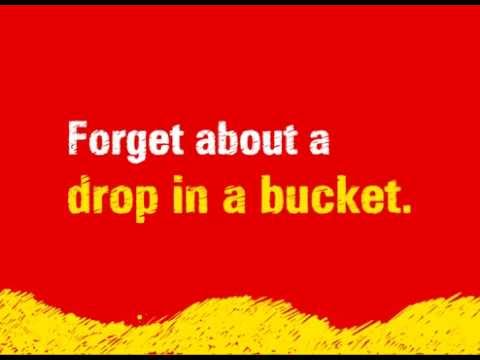
The Life You Can Save: How to Do Your Part to End World Poverty
The Lifelong Activist: How to Change the World without Losing Your Way
The Listening Project

The Little Book of Circle Processes : A New/Old Approach to Peacemaking
The Little Book of Courageous Living
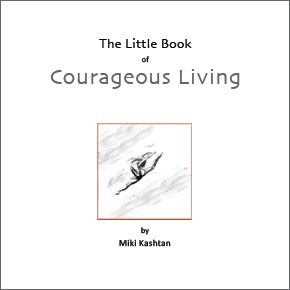
The Little Book of Restorative Justice
The Little Book of Restorative Justice in Education: Fostering Responsibility, Healing, and Hope in Schools
The Lost Love (free full audiobook) by Michael Lanfield
![]()
The Lottery of Birth (2013)
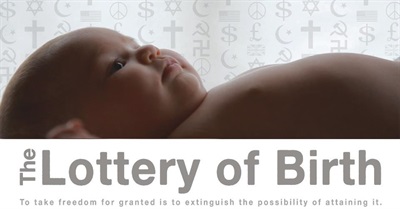
The Martin Luther King, Jr. Research and Education Institute (Stanford University)
![]()
The McDougall Program for a Healthy Heart: A Life-Saving Approach to Preventing and Treating Heart Disease
The Meat You Eat: How Corporate Farming Has Endangered America’s Food Supply
The Meatrix
The Mindful Vegan: A 30-Day Plan for Finding Health, Balance, Peace, and Happiness
The Mobilisation Cookbook
![]()
The Moment for Participatory Democracy
![]()
The Most Good You Can Do: How Effective Altruism Is Changing Ideas About Living Ethically

